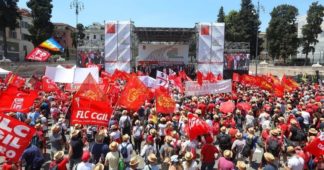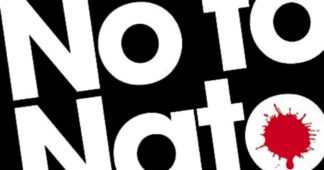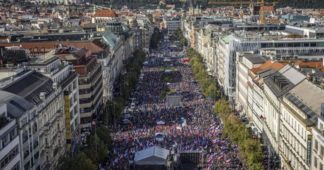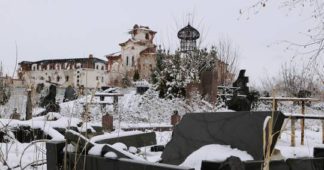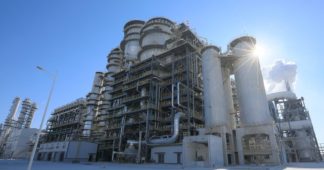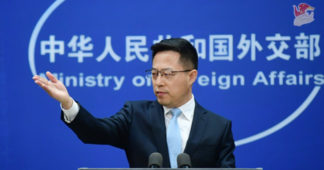Oct 18, 2022
Italians have marched in the capital Rome to protest against the country’s membership of the US-led NATO military alliance, as energy and cost-of-living crisis worsen across Europe amid the raging war in Ukraine.
The massive demonstration, organized by the USB (Unione Sindacale di Base) union, saw people burning energy bills in protest against skyrocketing costs of living, which are taking a huge toll on ordinary people in the southern European country.
The demonstrators called on the government in Rome to leave the NATO military alliance and demanded an end to the Russian war in Ukraine, now in its eighth month.
The simmering war in Ukraine has resulted in a severe energy crisis across the continent, fueling strong anti-NATO sentiments among people.
Italy has been rocked by several such anti-government and anti-NATO demonstrations in recent months.
In June, a demonstration was held in the center of the Italian capital for the withdrawal of Italy from NATO, against the supply of weapons to Ukraine and the spread of misinformation about Russia and the Ukrainian war.
The protest was organized by Italian parties and associations that are part of the political opposition in the country, including 3V, Ancora Italia, SìAmo, Riconquistare L’Italia and others.
Days ago, thousands of protesters gathered in Paris to call for an end to France’s membership of the US-led military alliance. They also urged their government to stop supplying arms to Ukraine, which has only prolonged the crisis.
France has for months been grappling with fuel shortages amid oil refinery strikes staged by workers demanding higher wages and better working conditions.
Russia launched the military operation in the former Soviet republic following Kiev’s failure to implement the terms of the 2014 Minsk agreements and Moscow’s recognition of the breakaway regions of Donetsk and Luhansk.
At the time, Russian President Vladimir Putin said one of the goals of what he called a “special military operation” was to “de-Nazify” Ukraine.
The United States and its European allies have imposed waves of economic sanctions against Moscow while supplying large consignments of heavy weaponry to Kiev despite Russian warnings.
Moscow has been critical of weapons supplies to Kiev by Washington and its Western allies, warning that it will only prolong the crisis.
The war in Ukraine and sanctions on Russia have fueled a rapidly worsening energy crunch on the European continent, sparking worries ahead of the winter.
Russia has cut off most gas shipments to Europe, which has for long relied heavily on Russian energy supplies, exposing the euro-zone countries to the economic fallout from the war more than other major global economies.
We remind our readers that publication of articles on our site does not mean that we agree with what is written. Our policy is to publish anything which we consider of interest, so as to assist our readers in forming their opinions. Sometimes we even publish articles with which we totally disagree, since we believe it is important for our readers to be informed on as wide a spectrum of views as possible.
